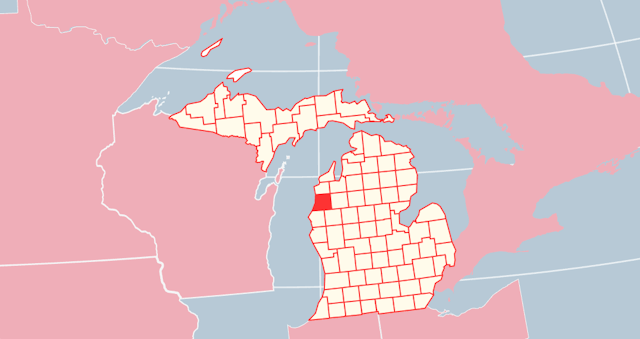Rehabs in Manistee
Manistee is one of the Northern Michigan counties. The seat has the same name. It’s the fifth-largest city in Northern Michigan.
This region is famous for its sandy beaches. The location and natural beauty attract many people and few of them move here to live.
Unfortunately, in the state of Michigan drug use is widely spread. 7.4% of ages 12 to 17 recorded marijuana as a primary substance of abuse.
From 2019 to 2020, overdose deaths increased from 2.354 to 2.684.
Of course, the government undertakes several actions to reduce this amount. But, unfortunately, in this region, there are many people who need help to get rid of the addiction.
Manistee County rehabs offer outpatient and inpatient treatment programs to those who want to live without substance use.
Manistee County Rehabs
This region is famous for its beautiful beaches and beautiful nature. It makes the place a good choice for a recovery center. In the city of Manistee, there is a rehab center where all recovery programs are offered.
Great Lakes Rehabilitation Center offers both inpatient and outpatient treatment methods. Here patients may spend detoxification.
Treatment approaches include anger management, cognitive behavioral therapy, motivational incentives, trauma-related counseling, etc.
Also, in Grand Rapids, which is far from the county seat 97 miles away, Wedgwood Christian Services offer outpatient treatment programs. Although in the clinic they don’t offer residential care, patients may detox here. Medical control and 24/7 care are included in provided services.
Treatment Programs in Manistee County Rehabs
In general, the recovery path starts with getting an assessment. At Great Lakes Rehabilitation Center, there are specialists that will help patients.
Secondly, patients continue with detox. As it is considered the hardest part of the recovery, therapists recommend staying under control. Moreover, sometimes patients need to take pills to minimize the withdrawal symptoms.
The duration of the detox program is from one to two weeks. It depends on the substance that was used and the duration of the addiction.
Thirdly, therapists recommend one of the following treatment methods
Inpatient
Outpatient
Short-term and long-term inpatient.
Inpatient Drug and Alcohol Rehab
Generally, it is the most recommended type of care. The duration is 30 days. As patients live in centers, they are far from the triggers. This helps them to stay sober for a long time.
Besides, during this time they attend several personal therapies, support group sessions, etc.
The whole program includes the following services
Individual therapies, family therapies
Support group sessions
Classes for relapse prevention
Medical control
24/7 care, etc.
During the rehabilitation, family members can visit their relatives if they want.
Outpatient Drug and Alcohol Rehab
The care type is always recommended after completing residential care. In usual, the duration is from 4-12 weeks. But in several cases, it may last up to six months.
The plan includes all the therapies and sessions that offer an inpatient plan.
Short-Term and Long-Term Drug and Alcohol Rehab
In some cases, if 30 days are not enough, therapists recommend spending in clinics up to two weeks.
On the other hand, for clients, it may be hard to live without their families. That’s why the short-term program may be the best choice.
It also includes all the services and approaches as the other plans.
Prices and Payment Methods
Actually, the price depends on many factors such as care method, amount of days or hours spent in facilities, approaches, facility location, etc.
Luckily, in clinics mentioned above accept private insurance. In the state of Michigan, there are facilities that offer a sliding fee scale. This means that the fee depends on the client’s income.
But, despite the price or any other factors, it is very important to get rid of a habit that may ruin not only the life of a person who uses substances but their family and friends' lives.

